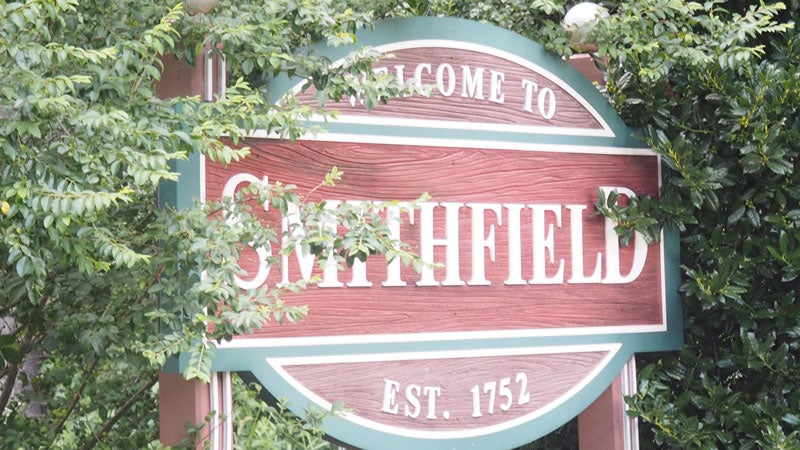Smithfield proposes policy limiting taxpayer funding for developers
Published 5:35 pm Wednesday, August 7, 2024

- File photo
Smithfield’s Town Council voted unanimously on Aug. 6 to form a committee tasked with writing a policy governing if or when taxpayer dollars can be put toward sharing in the cost of a private residential or commercial development.
The three-member body, to which Mayor Steve Bowman appointed Councilmen Randy Pack, Raynard Gibbs and Mike Smith as its chairman, came about as a compromise with Smith, who’d made a motion that the town explicitly “not subsidize private development of any kind with taxpayer dollars.”
Smith cited population estimates from the University of Virginia’s Weldon Cooper Center showing Isle of Wight as the state’s sixth fastest-growing county, and more than 1,400 new homes in approved developments in town that have yet to be built, among his reasons for bringing the matter up.
“I personally have been contacted by many citizens in this town about their concern about what’s going to happen with all the traffic,” Smith said, adding his constituents are also “very against any taxpayer dollars going toward private developments by private developers for profit.”
His initial motion proposing to bar any form of taxpayer participation in development drew an immediate second by Councilman Jeff Brooks.
The two had cast the dissenting votes in a 3-2 split decision in December to approve mixed-use zoning for the 267-home Grange at 10Main development proposed for 57 acres at the western edge of the town’s historic district at the corner of Route 10 and Main Street.
Grange developer Joseph Luter IV, last year, told Smithfield’s Planning Commission he may in the future seek “reimbursement” for costs associated with developing “public” components of the Grange, including roads, utilities and parking associated with an indoor-outdoor brick structure at the Grange that would house the town’s farmers market and anchor the development’s commercial phase.
A 2022 fiscal impact study by Ted Figura Consulting included with Luter’s rezoning application for the Grange had proposed the town and county jointly provide an “economic development incentive” for a hotel in the development’s commercial phase, and that one or both governing bodies “purchase the development’s infrastructure and utilities through a participation agreement.”
Smith’s initial motion for a blanket ban on taxpayer participation drew skepticism from Bowman, Pack, Councilman Jim Collins and Town Attorney Bill Riddick.
“It’s a statement addressing a problem that’s never occurred,” said Riddick.
To date, Luter has not requested specific funding beyond the $1.4 million the Town Council and Isle of Wight’s Board of Supervisors each voted in 2022 to commit toward moving the farmers market to the Grange. Luter’s father, former Smithfield Foods Chairman Joseph Luter III, at the time offered land and $1 million to build the structure that would house the market at the Grange, conditioned on the collective $2.8 million match by both governing bodies.
Riddick contends a blanket ban could run afoul of state law, which he said requires the town to pay its share of the cost if it requires a developer to, for example, add capacity to a pump station serving multiple neighborhoods beyond what’s needed for the development in question.
“By law, we have to pay the incremental,” Riddick said. “You need to think about this … it’s really not that easy.”
Collins said while he agreed with not using taxpayer money to subsidize residential development, if a business was in negotiations to move its headquarters or expand into Smithfield and the town wanted to offer an incentive to seal the deal, “this would not allow us to do it.”
“In many places, that’s called economic development,” Riddick added.
Bowman said that while he opposes taxpayer subsidies for residential development, “busness might be a little different.”
“The council has never spent money that I’m aware of other than what’s required by law on residential development,” Bowman said.
Town Manager Michael Stallings confirmed in 2023 that when Virginia Beach-based Napolitano Homes, the developer of the 812-home Mallory Pointe development off Battery Park Road, proposed replacing an 8-inch-wide water main serving the street with a new 16-inch pipe in public right-of-way, Napolitano agreed to fund 100% of the cost.
Smith said his proposed written policy may or may not impact Luter III’s offer of $6 million for the beautification of the western edge of Smithfield’s historic district. Luter III made the offer in May, conditioned on the town matching the amount dollar for dollar, which according to Bowman would fund a brick perimeter wall in town-owned right-of-way and brick sidewalks fronting Main Street’s intersection with Route 10 leading to the Grange site.
Pack’s participation on the committee means it will need to complete its work by Dec. 31 when Pack’s term in office ends, as he’s not running for reelection in November.





